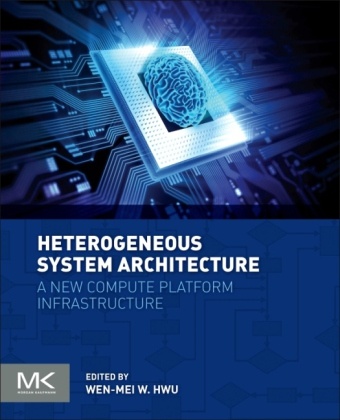Read more
Informationen zum Autor Wen-mei W. Hwu is a Professor and holds the Sanders-AMD Endowed Chair in the Department of Electrical and Computer Engineering, University of Illinois at Urbana-Champaign. His research interests are in the area of architecture, implementation, compilation, and algorithms for parallel computing. He is the chief scientist of Parallel Computing Institute and director of the IMPACT research group (www.impact.crhc.illinois.edu). He is a co-founder and CTO of MulticoreWare. For his contributions in research and teaching, he received the ACM SigArch Maurice Wilkes Award, the ACM Grace Murray Hopper Award, the Tau Beta Pi Daniel C. Drucker Eminent Faculty Award, the ISCA Influential Paper Award, the IEEE Computer Society B. R. Rau Award and the Distinguished Alumni Award in Computer Science of the University of California, Berkeley. He is a fellow of IEEE and ACM. He directs the UIUC CUDA Center of Excellence and serves as one of the principal investigators of the NSF Blue Waters Petascale computer project. Dr. Hwu received his Ph.D. degree in Computer Science from the University of California, Berkeley. Klappentext Heterogeneous System Architecture: Practical Applications for Industry provides a comprehensive overview of this next-generation computing framework for building high-performance applications for scientific research, cloud computing, big data analysis, and more. . It's similar to NVIDIA CUDA in that it leverages co-processors (such as GPUs) for computationally-intensive applications and can increase efficiency by factors of tens of thousands. Unlike CUDA, HSA is an open standard supported by a cross-industry consortium, the HSA Foundation, representing the majority of the low-power processor platforms supporting embedded and co-processor computing including AMD, ARM, Qualcomm, and others. . The book leverages OpenCL and helps developers using a variety of languages including C, C++, Java, JavaScript, Python, and more. The book begins with an introduction to the platform, explaining the design philosophy and specification to let developers see "under the hood" at the architectural choices. . Later, application-specific chapters offer working examples and case studies representing the range of possible use cases for HSA in different industry verticals. Inhaltsverzeichnis 1. Introduction 2. HSA Overview3. HSAIL - Virtual Parallel ISA4. HSA Runtime5. HSA Memory Model6. HSA Queuing Model7. Compilation Technology8. Application Use Cases: Platform Atomics9. HSA Simulators: Simulating HSA in Multi2Sim ...
List of contents
1. Introduction 2. HSA Overview3. HSAIL - Virtual Parallel ISA4. HSA Runtime5. HSA Memory Model6. HSA Queuing Model7. Compilation Technology8. Application Use Cases: Platform Atomics9. HSA Simulators: Simulating HSA in Multi2Sim
Report
"...an effective combination of background, theory, and practical examples for using each of HSA's many features. Each group of features is addressed in a chapter written by academic and corporate experts on that topic....a valuable and insightful book." --EE Times

